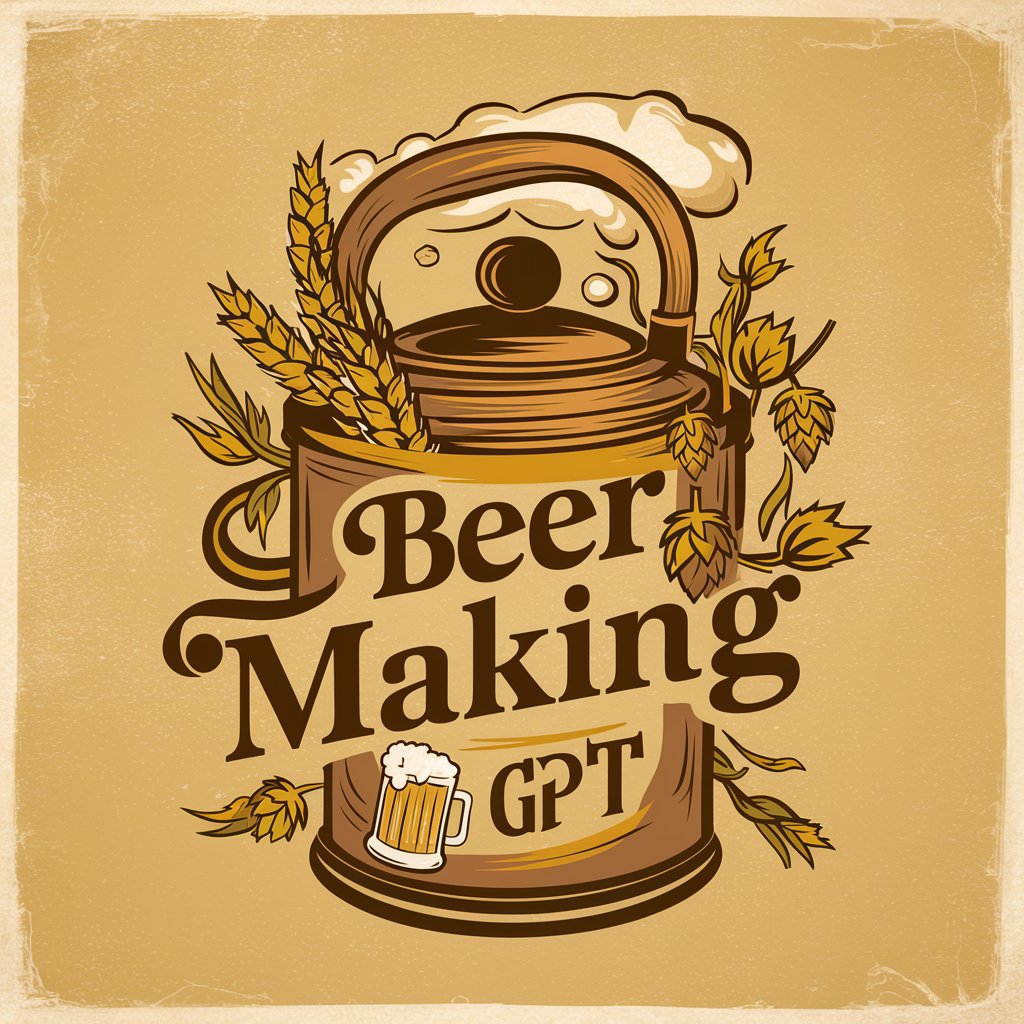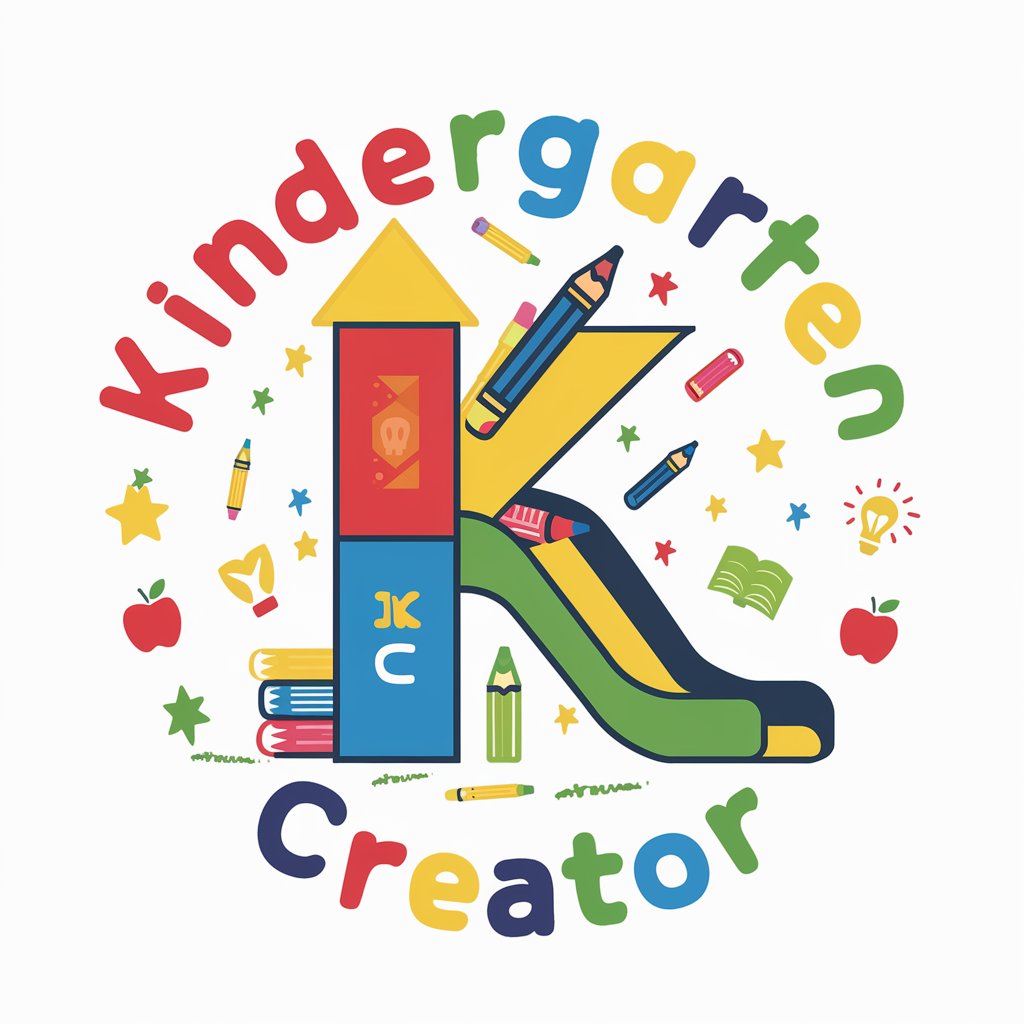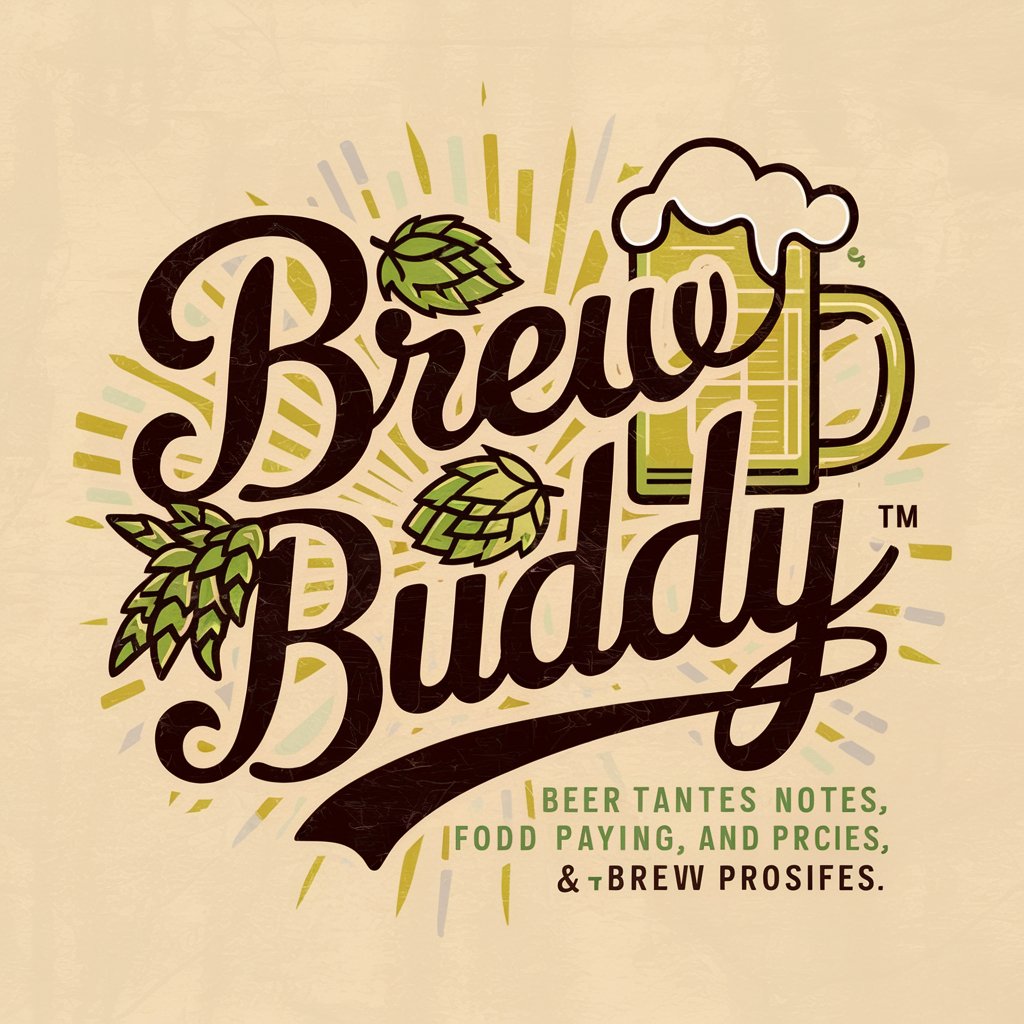
Beer Making - Beer Making Insights

Welcome! Let's explore the art and science of brewing beer.
Master brewing with AI-powered guidance
Explain the role of hops in brewing beer and their impact on flavor.
What are the key steps involved in the fermentation process of beer?
How does the choice of malt influence the color and taste of beer?
Describe the process and importance of mashing in beer production.
Get Embed Code
Overview of Beer Making
Beer Making is designed to serve as a comprehensive guide and resource for the brewing process, covering all aspects from the initial selection of ingredients to the final steps of fermentation and bottling. Its purpose is to offer detailed insights into the ingredients, techniques, and science behind brewing, tailored to both beginners and experienced brewers. For example, it can provide step-by-step guidance on crafting a traditional Belgian Witbier, including the selection of specific yeast strains for desired flavor profiles, or offer advice on adjusting water chemistry for brewing a crisp and refreshing Pilsner. The design is rooted in the educational aspect of brewing, aiming to enhance the user's understanding and skills in beer production through accurate and in-depth information. Powered by ChatGPT-4o。

Key Functions of Beer Making
Ingredient Selection and Recipe Formulation
Example
Choosing malts, hops, yeast, and water treatments for brewing an American IPA.
Scenario
A homebrewer looking to brew an American IPA might seek guidance on selecting the right combination of malts for a balanced malt backbone, hops for the desired bitterness and aroma, and yeast that complements the beer's profile. Beer Making can provide specific advice, such as using Citra and Amarillo hops for their citrus and floral notes, and a clean-fermenting American ale yeast.
Brewing Process Guidance
Example
Step-by-step instructions for all-grain brewing, including mashing, sparging, boiling, and fermenting.
Scenario
An individual new to all-grain brewing may need detailed instructions for each step. Beer Making can offer insights into temperature control during mashing for optimal enzyme activity, sparge techniques to maximize sugar extraction, and the importance of boil durations for hop utilization. It also covers fermentation temperature control for different yeast strains.
Troubleshooting and Optimization
Example
Addressing common brewing problems like stuck fermentation or off-flavors.
Scenario
A brewer experiencing stuck fermentation could use Beer Making to understand potential causes, such as yeast health or temperature issues. The service can suggest remedies like rousing the yeast or adjusting temperatures. For off-flavors, it could help identify the cause, like oxidation or contamination, and offer solutions to prevent future occurrences.
Target Users of Beer Making Services
Homebrew Enthusiasts
Individuals passionate about crafting their own beer at home, seeking to expand their brewing knowledge and skills. They benefit from detailed process explanations, recipe formulation guidance, and troubleshooting help to refine their craft and experiment with new styles.
Professional Brewers
Craft brewery personnel looking for advanced insights into brewing science, process optimization, and quality control. They can utilize the service for deep dives into technical aspects, such as yeast management or water chemistry adjustments, to improve product consistency and explore new brewing frontiers.

How to Use Beer Making
Start Your Journey
Begin by visiting yeschat.ai to explore Beer Making without the need for sign-up or a ChatGPT Plus subscription, offering a seamless start.
Identify Your Needs
Consider what you're looking to achieve with Beer Making, whether it's understanding brewing processes, ingredient selection, or recipe formulation.
Explore Features
Utilize the tool's functionalities to dive into brewing techniques, equipment usage, and the science behind beer making for comprehensive learning.
Apply Knowledge
Put the information into practice by planning and executing your own brewing projects, using the insights and tips provided by Beer Making.
Stay Updated
Regularly check back for updates and new features to continuously enhance your brewing skills and knowledge base.
Try other advanced and practical GPTs
Salvador Cultura
Empowering Cultural Narratives with AI

Content Brainstorming and Creation Assistant
Unleash Creativity with AI

Video Creation Expert
Empowering storytelling with AI

Landing page content - heading- subject Creation
Elevate Your Landing Page with AI

Web Story Creation Assistant
Craft Compelling Stories with AI

Making It
Empowering Design with AI-Driven Insights

Super Teacher
Empowering education with AI

Kindergarten Creator
Empowering Educators with AI-Driven Lessons

APRENDIX
Empowering education with AI innovation.

CISSP Study Champion
AI-driven CISSP Exam Mastery

Sales Coach Pro
Empowering Sales Success with AI

GPT Academy
Empowering learning through AI

Frequently Asked Questions About Beer Making
What basic ingredients are needed for beer making?
Beer making typically requires four basic ingredients: water, malted grain (usually barley), hops, and yeast. Each plays a crucial role in flavor, aroma, and the fermentation process.
How do I choose the right yeast for my beer?
Select yeast based on the beer style you're aiming for. Ale yeasts ferment at warmer temperatures and produce fruity flavors, while lager yeasts ferment cooler and result in a cleaner taste.
Can I brew beer at home without advanced equipment?
Absolutely. Basic home brewing can be done with a few essential items, such as a brewing kettle, fermentation vessel, sanitizer, and bottling equipment. Start with simple recipes to gain experience.
What's the significance of water quality in brewing?
Water quality is paramount as it makes up the majority of beer. The mineral content can affect the pH, flavor, and clarity of the beer. Using filtered or spring water is often recommended.
How do I know when my beer is ready to bottle?
Beer is typically ready to bottle after fermentation has ceased and the beer has cleared. This can take anywhere from a few days to several weeks. Use a hydrometer to check if the fermentation process is complete.





